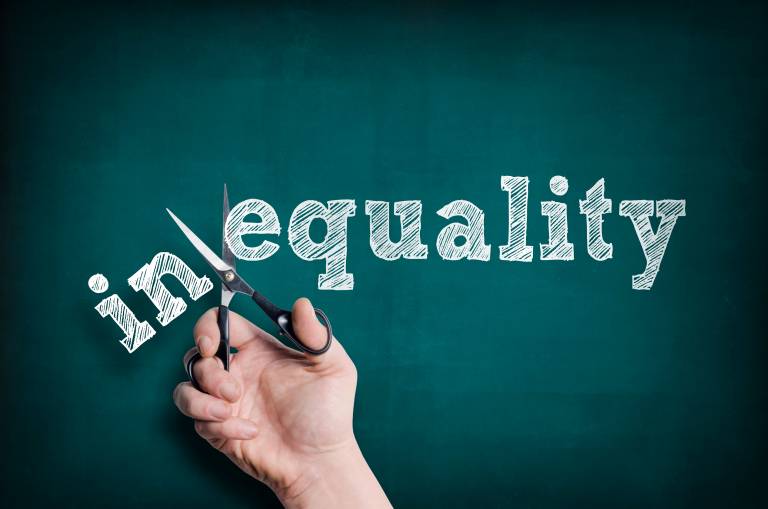VIRTUAL EVENT: Structurally Unsound: Tackling Inequalities in UK Society
06 October 2020, 1:00 pm–2:00 pm

This lecture will discuss UCL’s recent project with the Resolution Foundation, Exploring Inequalities: Igniting research to better inform UK
This event is free.
Event Information
Open to
- All
Availability
- Yes
Cost
- Free
Organiser
-
Sanaa Al-Busaidy
About the lecture:
Choose any year at random over the past 50 years and you’d be almost certain to find at least one piece of equalities focused legislation enacted in that year. Yet, stark inequalities remain embedded in UK society – inequalities that have been further magnified and exacerbated by COVID-19.
This lecture will discuss UCL’s recent project with the Resolution Foundation, Exploring Inequalities: Igniting research to better inform UK policy, and draw on findings from the project’s report, Structurally Unsound.
The lecture will outline how we can better approach addressing structural inequalities and highlight key gaps in our collective understanding – both in terms of the evidence base and what works when it comes to policy interventions. We’ll conclude by reflecting on the impacts this project has had and where we hope to go next.
About the Speakers
Siobhan Morris
Coordinator of the Grand Challenge of Justice &Equality at UCL
Siobhan Morris leads UCL’s Grand Challenge of Justice & Equality, working with academics and external partners to facilitate research and collaborations. She is lead author of the UCL-Resolution Foundation report Structurally Unsound
Dr Olivia Stevenson
Deputy Director at UCL Public Policy
Dr Olivia Stevenson is Head of UCL Public Policy, UCL’s flagship initiative to support academic-policy engagement, based in the Office of the Vice-Provost (Research). She is also a co-founder of the Universities Policy Engagement Network (UPEN) and UCLs co-lead for the Research England funded project ‘Capabilities in Academic Policy Engagement’ (CAPE)
 Close
Close

